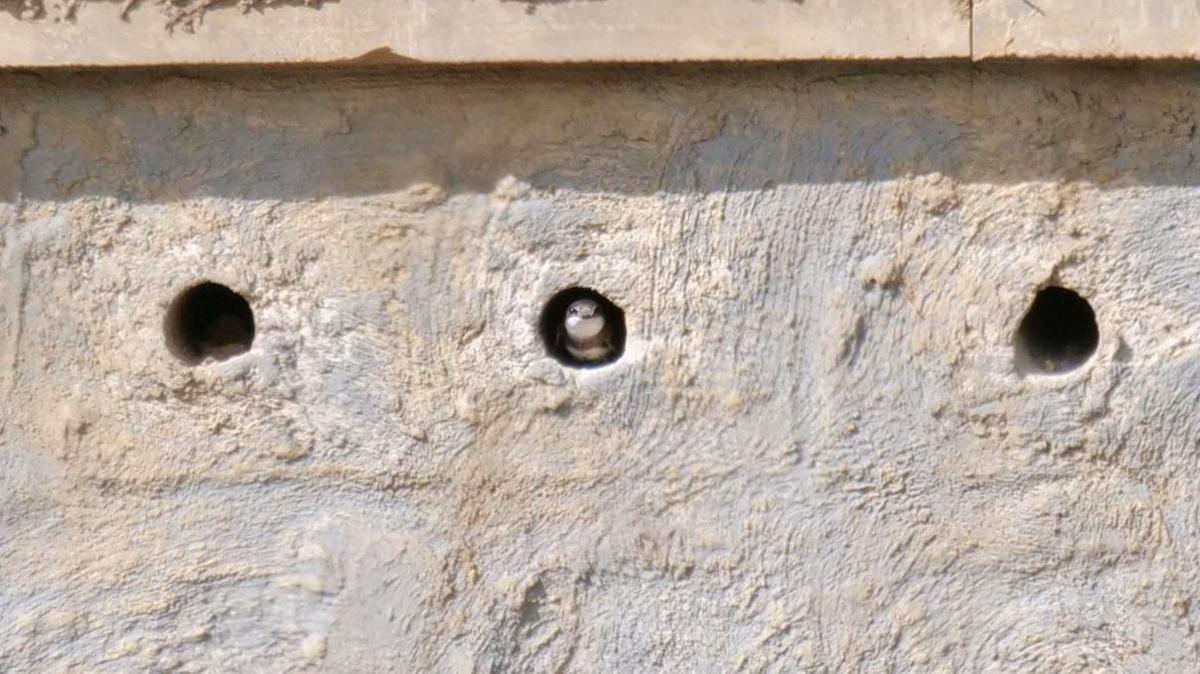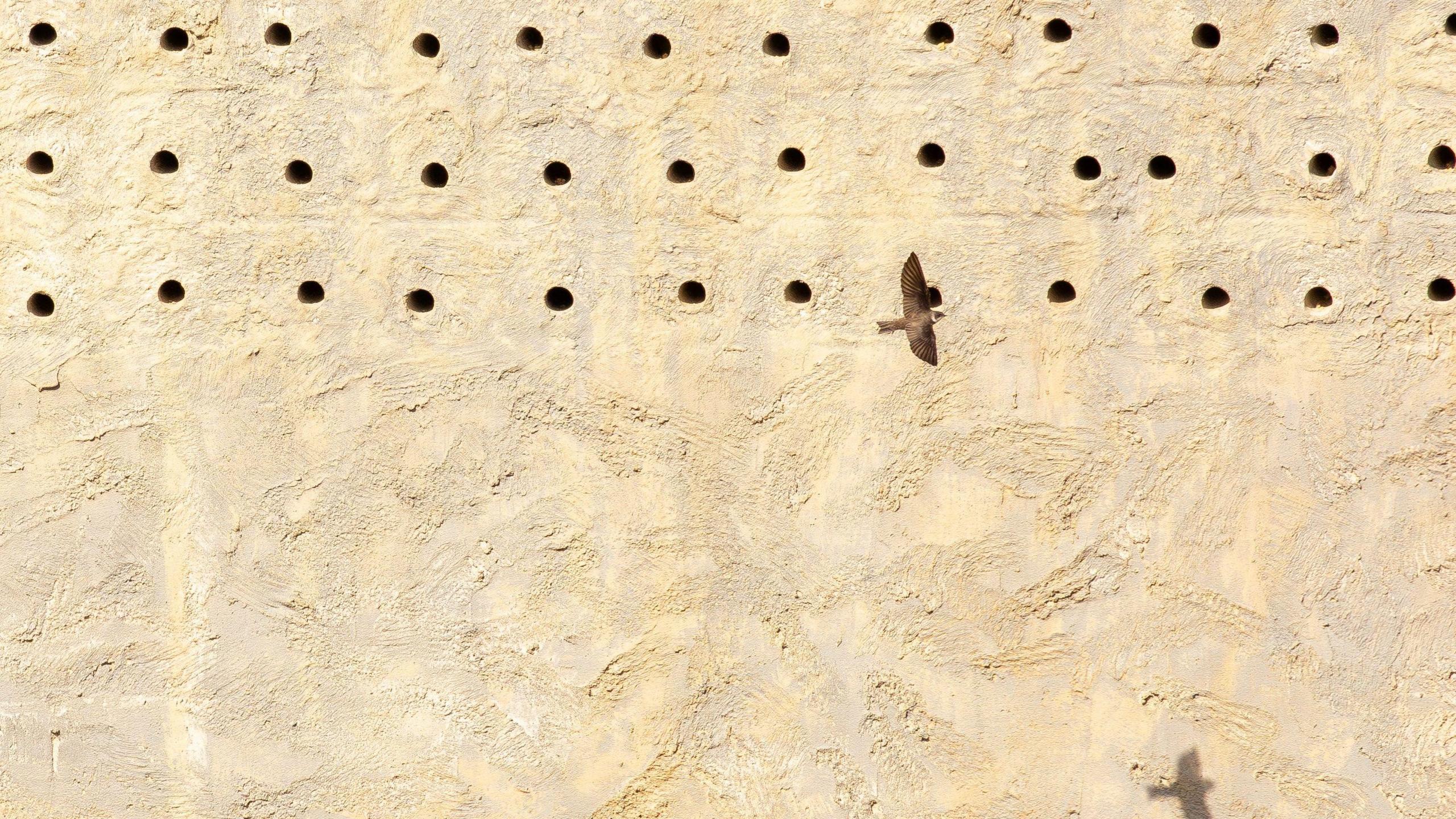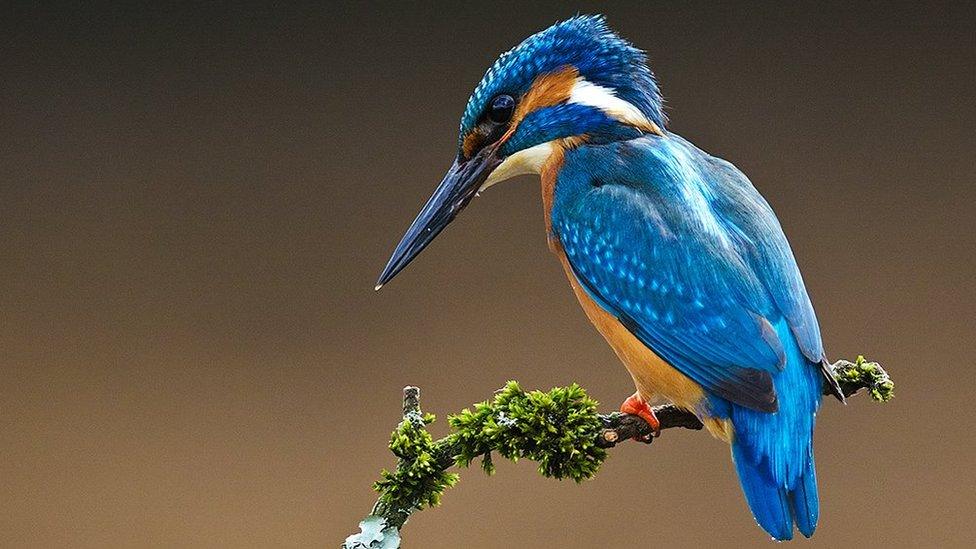Artificial nesting bank brings sand martins breeding hope

Sand martins have been spotted inside the nesting bank's chambers
- Published
A new artificial nesting bank for sand martins in north-east England has shown signs of early promise, nature chiefs say.
The structure was built at Washington Wetland Centre in October in anticipation of the migratory birds’ return this spring and has space for 100 nesting pairs.
Several sightings have already been made around its openings, according to reserve manager John Gowland.
It is now hoped some of the birds will choose to settle and breed at the centre for the first time in its 49-year history.
Sand martins, which include swallows and house martins, typically hunt and feed over the site’s Wader Lake in spring, although the birds' previous attempts to dig natural nesting chambers in the nearby banks of the River Wear proved unsuccessful.
The new artificial structure is made up of cavity blocks and a series of holes which the sand martins can fly into. It also has a tunnel and nest chamber.
Sightings 'encouraging'
“Sand martins are one of the first spring migrants to arrive on our reserve each breeding season," Mr Gowland said.
“We’re hopeful the introduction of the new artificial bank will see some success for the species and these early sightings are very encouraging.
“We have provided everything the sand martins need to nest successfully."

The structure was built in October ahead of the birds' spring migration
Earlier attempts at encouraging nesting saw centre staff reshape a section of the lake’s bank to create a vertical wall.
However, the soil was a mix of clay and rubble stone which was "too compacted" for the birds to dig into, Mr Gowland explained.
Follow BBC North East on X (formerly Twitter), external, Facebook, external and Instagram, external. Send your story ideas to northeastandcumbria@bbc.co.uk.
Related topics
More stories from BBC North East and Cumbria
- Published21 September 2023
